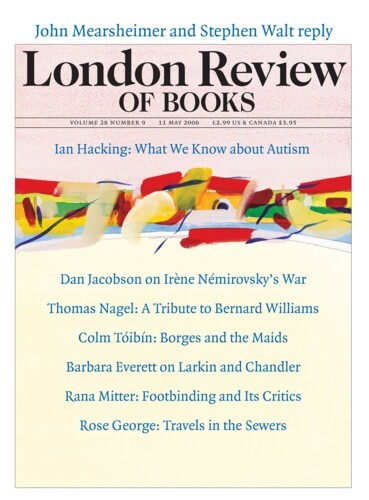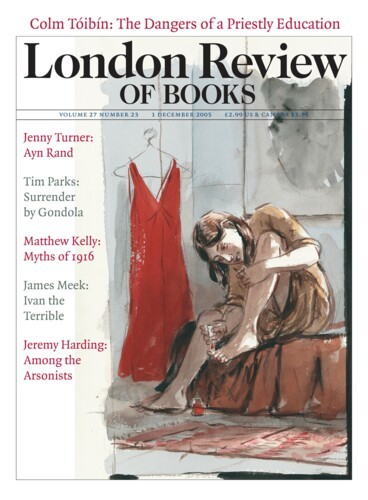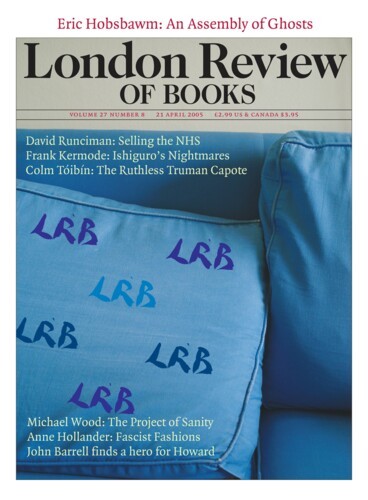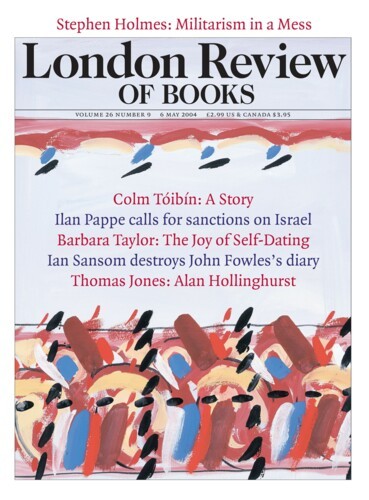Everybody was afraid of Dr Sherwood. My mother was afraid of him at meetings of Pax Romana, the lay Catholic discussion group in Enniscorthy, our town, because he had a way of glaring at women members when they spoke. He didn’t, it seemed, like women speaking. At St Peter’s College, the seminary and boarding-school where I went at the age of 15 in 1970, he was dean of the seminary, but he had once been dean of discipline of the boarding-school, and had a fearsome reputation as a merciless wielder of the strap. I studied him carefully when I first saw him; he was gaunt and unsmiling. Soon, even though he had no business on the lay side, I saw him at work. Four or five of us were hanging around the squash courts after lights out. When he saw us, he stood quietly at first and watched us; then he picked on the most innocent and vulnerable boy. He called him over and began to interrogate him while pinching one cheek hard and then the other cheek and then pulling his ears with enormous slow ferocity and then moving to his slow-growing sideburns until he had almost lifted our poor friend off the ground. Dr Sherwood was evil. I made up a song about him with a vile chorus.
Everybody was afraid of Dr Sherwood. My mother was afraid of him at meetings of Pax Romana, the lay Catholic discussion group in Enniscorthy, our town, because he had a way of glaring at women members when they spoke. He didn’t, it seemed, like women speaking. At St Peter’s College, the seminary and boarding-school where I went at the age of 15 in 1970, he was dean of the seminary, but he had once been dean of discipline of the boarding-school, and had a fearsome reputation as a merciless wielder of the strap. I studied him carefully when I first saw him; he was gaunt and unsmiling. Soon, even though he had no business on the lay side, I saw him at work. Four or five of us were hanging around the squash courts after lights out. When he saw us, he stood quietly at first and watched us; then he picked on the most innocent and vulnerable boy. He called him over and began to interrogate him while pinching one cheek hard and then the other cheek and then pulling his ears with enormous slow ferocity and then moving to his slow-growing sideburns until he had almost lifted our poor friend off the ground. Dr Sherwood was evil. I made up a song about him with a vile chorus.





